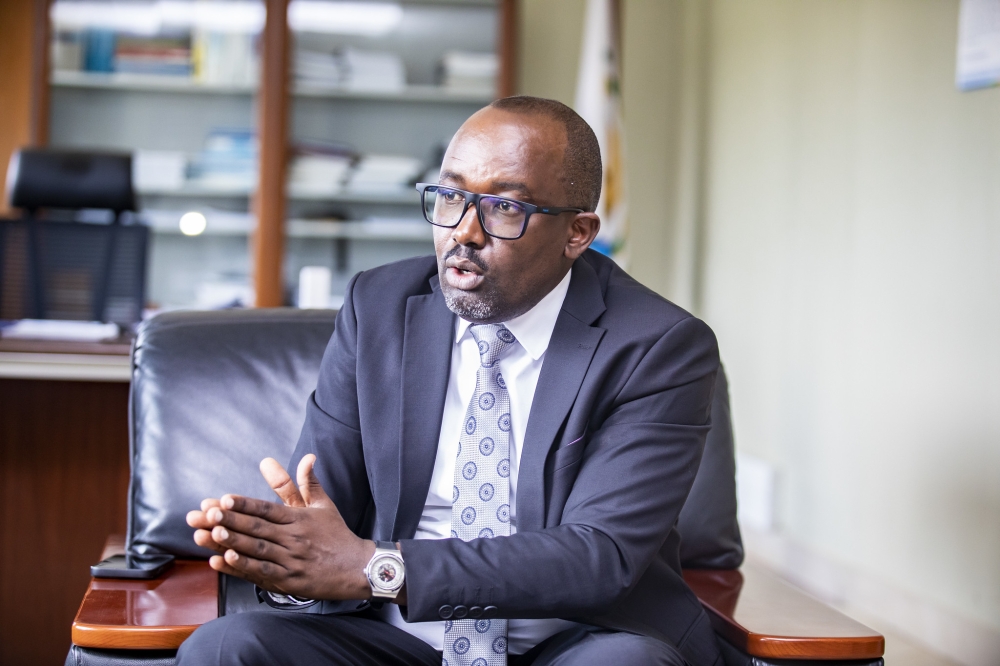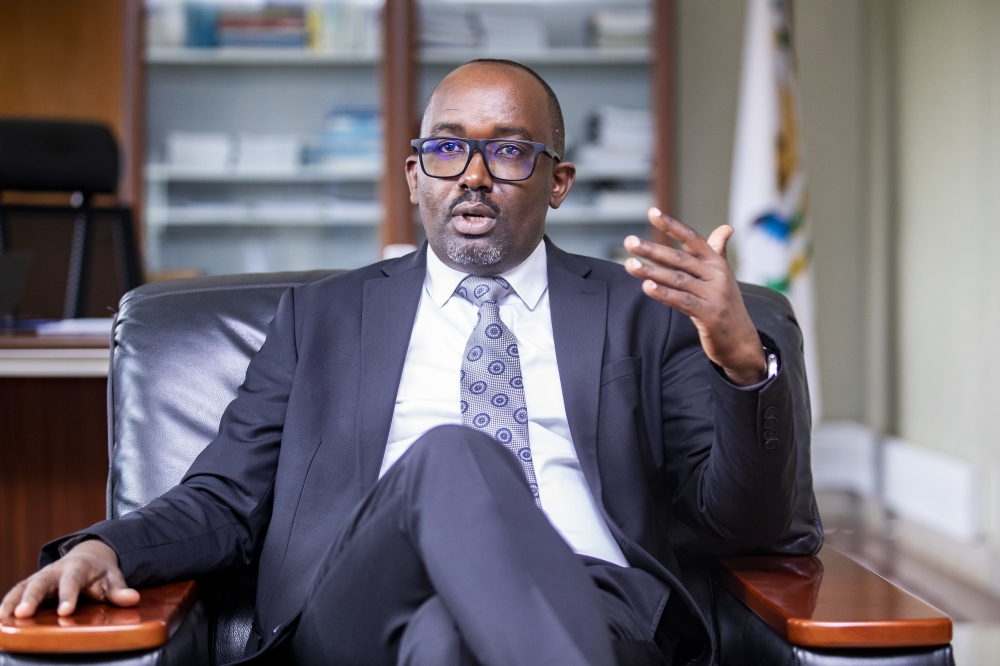

Rwanda’s public spending has been on the rise, from Rwf126 billion in 2002 to Rwf 5 trillion in 2023/2024 — indicating a more than 39-fold increase over the past two decades — according to information from the Ministry of Finance and Economic Planning. Also, the country receives funding from development partners, which the government says is put to good use.
As the country’s budget kept increasing, the Government also improved public finance management (PFM) systems to ensure compliance with the legislation and promote value for money and accountability for the improvement of its citizens’ welfare and development.
On July 9, the Global Fund to Fight AIDS, Tuberculosis and Malaria (commonly known as the Global Fund) issued a statement indicating that based on the milestones in their own PFM journeys, countries such as Rwanda, India, and Indonesia showed significant progress in adopting public financial management systems as part of the health delivery value chain.


The statement acknowledged the need for these countries to adopt the legal, regulatory, and tactical digitalization of government financial management systems, alongside custom-built technological solutions, ownership, and strategies for transitioning to domestic financing.
The Global Fund stated that as part of its efforts to help countries sustain their progress in healthcare, it had integrated the use of its public financial management (PFM) strategy in the health sector as an enabler to drive sustainability and improve health outcomes in countries.
PFM is part of the solution to enable integration and sustainable health systems strengthening. This approach ensures that resources are efficiently coordinated, managed, and used to achieve impact and improved health outcomes, it added.
Rwanda’s Auditor General, Mr. Alexis Kamuhire, reaffirmed throughout the Global Fund meeting that was held in Geneva (from July 3 to 5) that "unity of purpose, thinking big, and effective country-driven accountability are key elements of a functioning PFM system.”
In an interview with The New Times, Kamuhire talked about how Rwanda built its PFM systems, why they are worth adopting by development partners that provide funding to the country, and why this approach matters.
Here are the excerpts:
The organic law of 2022 on public finance management provides for early access to financial statements from public entities and gives the Office of the Auditor General the power to audit all specialized organs. How has this law started bearing fruits in terms of effective public finance management?
This law was meant to bring reforms in the way public finance is managed. It replaced the law of 2013. Some of its provisions include reporting (submitting financial statements). It concerns all public entities.
The law provides that all central Government entities and decentralized entities prepare and submit monthly financial statements to the Minister [in charge of finance] no later than the 20th day following the end of the month.
Each public sector entity must submit its annual financial statements to the Minister with a copy thereof to the Auditor General of State Finances within 45 days following the end of the fiscal year in question. [A financial year ends on June 30 of each year].
When such entities submit reports to MINECOFIN, they must forward a copy to us [the OAG].
The outcome includes that the entities subject to audit increased. The report we submitted [to Parliament, for the financial year ended on June 30, 2023] showed that we audited the national budget at a rate of 96 percent. We did not cover only 4 percent. It does not mean that we do not know what happens within the 4 percent. We carried out a risk assessment and concluded that there were not many issues there, but later decided to focus on where most of the funds were and whether there could be a need for improvement.
Also, the audit for commercial entities [Government business enterprises] increased from 17 in 2022 to 27 in 2023, overall. It means that because we got information earlier, it helped us to get an opportunity to audit such entities and provide recommendations on time so that concerned institutions can implement them.
So, those are some of the results we have observed as a result of the law amendment, we are receiving information on time and the plan is to increase the number of entities we audit, especially government business enterprises.
Considering the reports of the Office of the Auditor General, what are major improvements in terms of managing public finance?
We gauge the good changes through the opinions or conclusions we make.
Our opinions or conclusions showed that 92 percent of the public institutions we audited, got unqualified opinions (clean audits) on the preparation and presentation of public financial statements. There was also an improvement in terms of compliance with laws and regulations for controlling public spending, and the realization of value for money in utilization of public funds though the audit report highlighted some areas where improvements are still needed to ensure that every Rwandan franc is accounted for.
Three factors made that possible. One is that our PFM system is stable and that is based on the fact that the personnel has become experienced in terms of PFM because MINECOFIN trained them a lot, which made them accustomed to preparing reports in line with relevant laws.
Another factor that I realize contributed to the progress is IFMIS – a system for the management of national finances.
It yielded great results because MINECOFIN continued to upgrade it and now it has reached a level where documents about public finance use are stored in the system.
There was also collaboration between the auditing entity [OAG], audited institutions, as well as MINECOFIN. As such, there is an opportunity to correct a mistake spotted in writing financial statements [before the Auditor General gives an opinion about them].
There are other factors, but I can say those are key ones that contributed to the achievements of the registered good changes.
What is the state of funding from development partners in Rwanda, currently, and what do you think should change based on the progress Rwanda has made in terms of public finance management?
Overall, funding from [Rwanda’s] development partners is well managed because our country put in place mechanisms for its better management. There are entities that were established and mandated to manage such money. They include the Ministry of Finance and Economic Planning (MINECOFIN), Rwanda Public Procurement Authority, and the Office of the Auditor General.
There are also those that ensure that entities are held accountable for public finance management. They include Parliament, and judicial organs such as the National Public Prosecution Authority (NPPA), the Rwanda Investigation Bureau (RIB), the Ministry of Justice (MINIJUST), as well as the OAG.
Our country set up institutions for following up on the management of public finance, and they are functional.
Another aspect is the enactment of relevant laws, including the organic law governing public finance management, the law governing public procurement, but also related ministerial orders.
After the establishment of institutions and laws, there also set up PFM systems including Integrated Financial Management Information & System (IFMIS), and e-procurement which is an online procurement system, which helped us a lot.
Those systems enable entities in charge of public finance management to get the means to control it properly.
Besides that, there are also human resources or personnel trained in using such systems, and we will continue putting more effort into training them, including auditors, and public finance managers.
When you have all that, I don’t see how funds from a development partner can go missing, when you have complied by such an established system.
So, it is those systems we have, the institutions we have, and how the money is used that I can say one can base on to state that such funds are well managed.
We call upon our development partners to rely on and use Rwanda’s PFM systems because they are reliable and operational.
Why should all development partners adopt Rwanda’s PFM systems?
Rwanda showed that its PFM systems are well built and are promising in yielding results in areas where the money is invested especially in the health sector, this was noted during the meeting we
had with the Global Fund which took place in Geneva, from July 3-5. The purpose of the meeting that convened 14 countries overall that receive health financing from the Global Fund – including countries from Africa, Asia, and Caribbean countries – was to know what should be done so that countries’ PFM systems can be relied upon by the Global Fund to manage those funds.
It is observed that the money they [Global Fund] invest in Rwanda’s health sector is not wasted, and that is thanks to the functioning PFM systems of Rwanda. That is based on the good leadership we have, and Rwanda ranked among the three first countries – they are Rwanda, India, and Indonesia. Rwanda was commended for better management of funding from development partners..
The money received from the Global Fund has been put to good use, and the outcomes from the health sector especially on the management of Malaria, HIV, and Tuberculosis have improved over the past years. That makes us able to achieve the result we expect in terms of reducing cases of those 3 diseases.
The funds from the Global Fund were managed through the National Treasury and Rwanda’s PFM systems, this contributed to ensuring a quick service delivery including Planning, Budgeting, procurement, and reporting on the use of funds. The Office of the Auditor General of Rwanda has been auditing these funds as per the agreements with the Global Fund and the Government of Rwanda.
We would wish other development partners to provide their funding through the use of Rwanda’s [PFM] systems because it yields [good] results in terms of service delivery, less cost, and efficiency in decision making.


